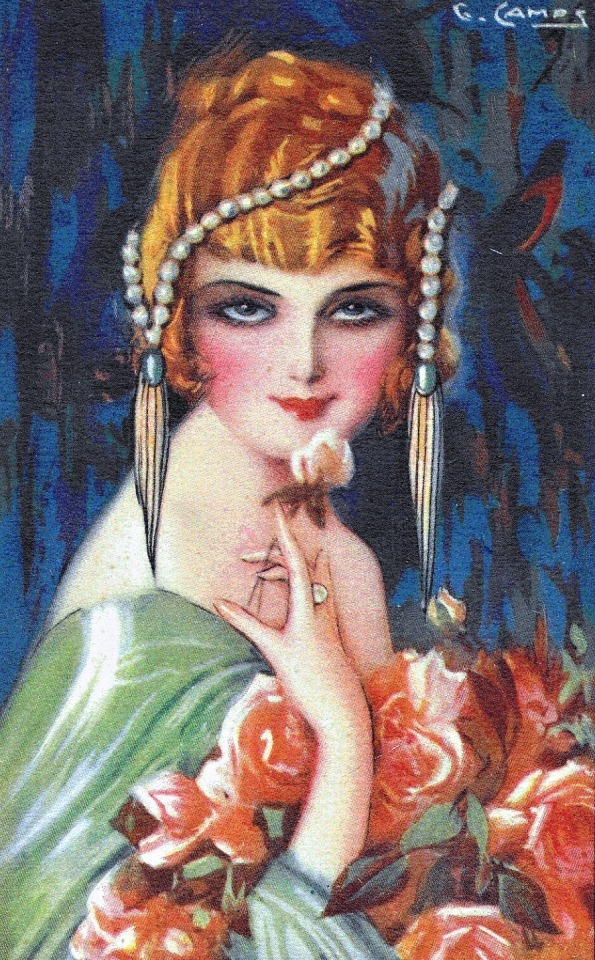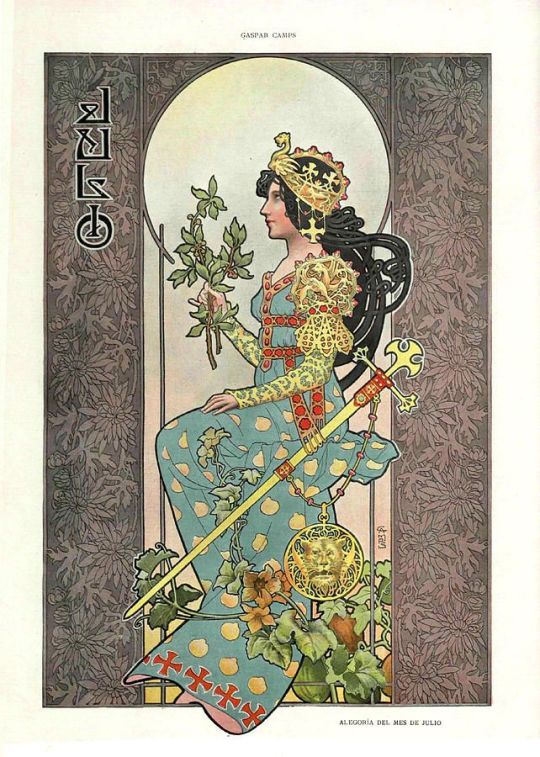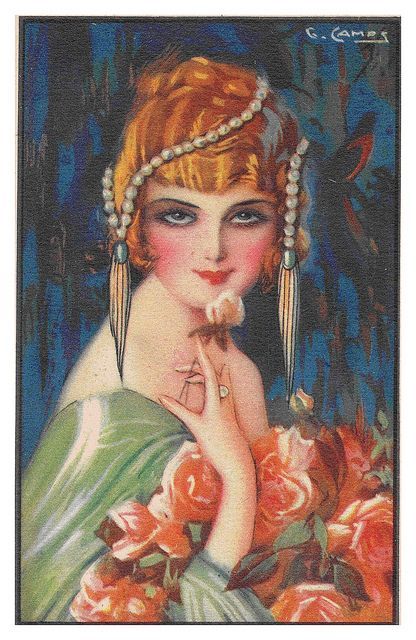#gaspar camps
Photo
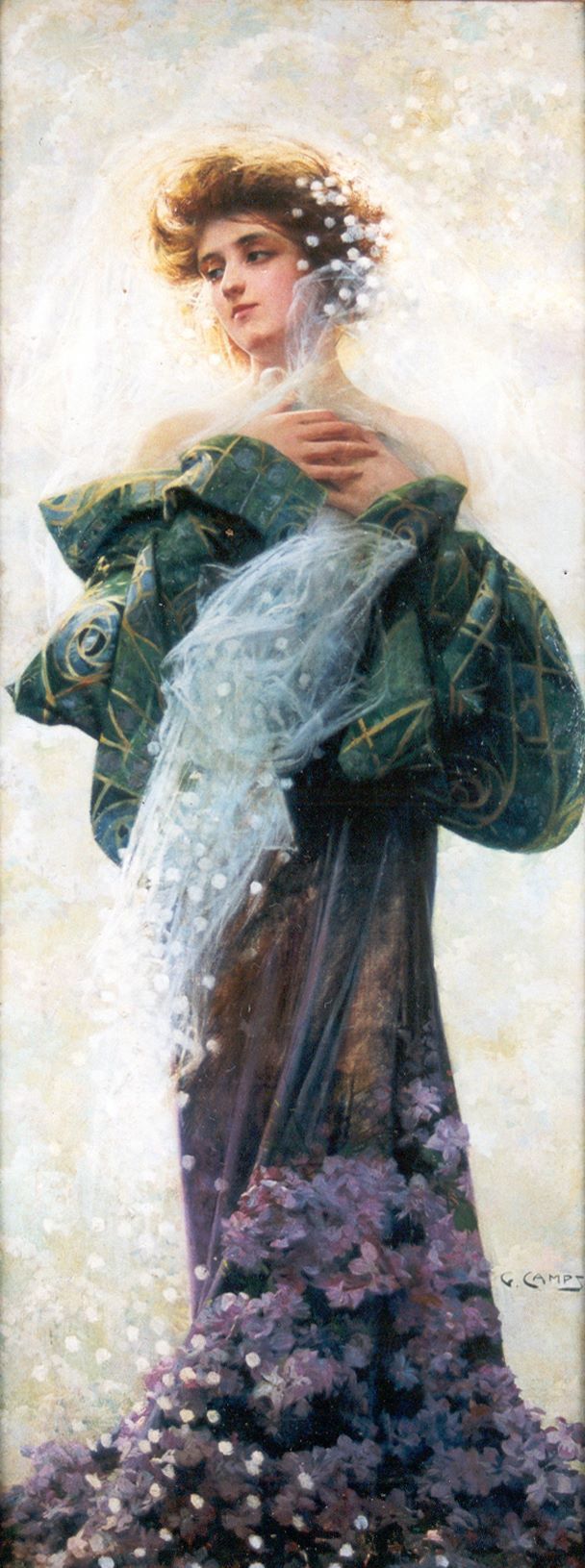
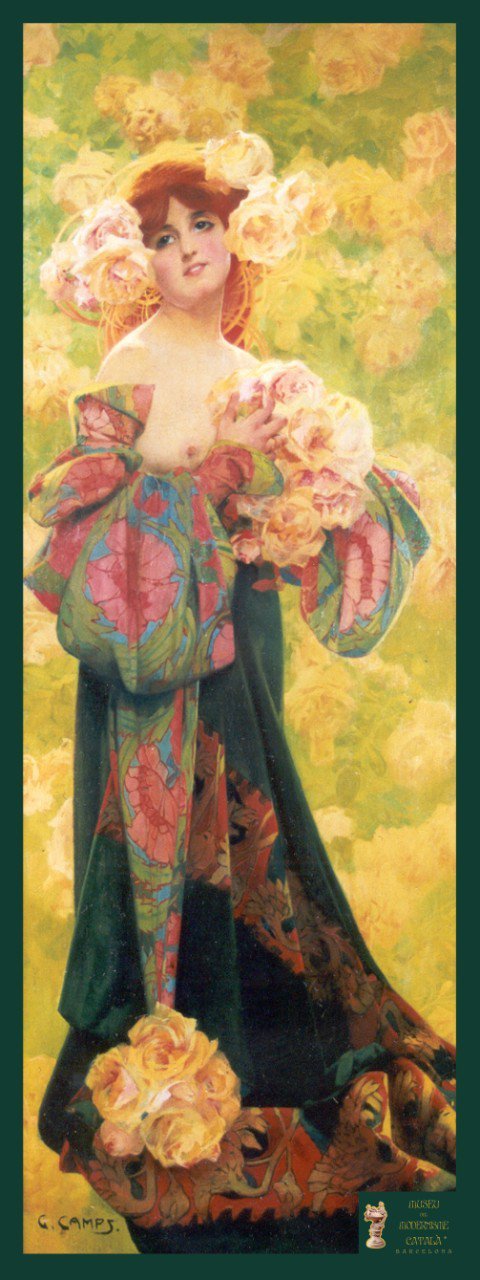
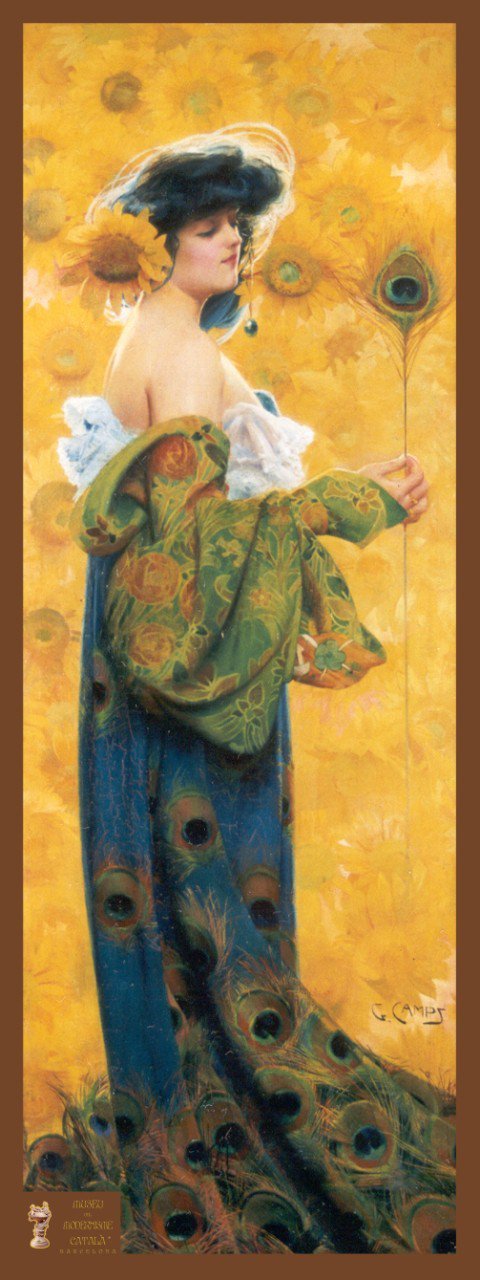
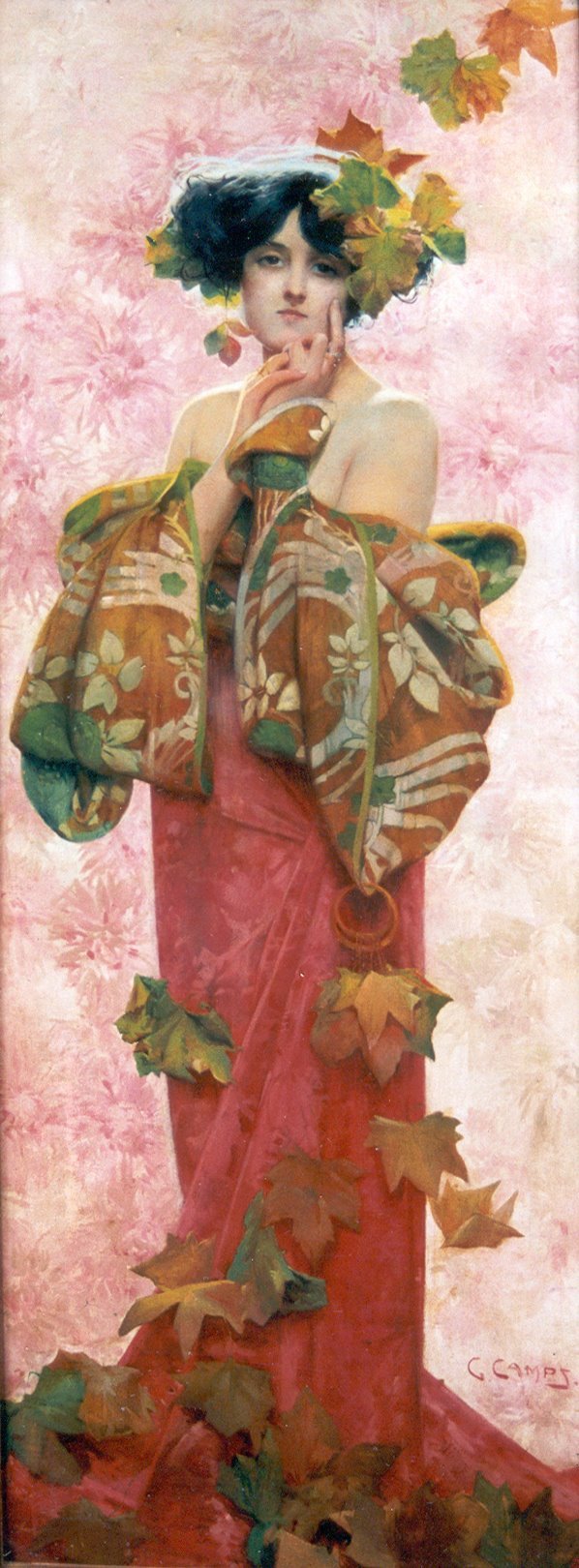
Winter, Spring, Summer and Autumn by the Catalan artist Gaspar Camps (1874-1942).
Museu del Modernisme Català.
#gaspar camps#pintura#arts#modernisme#art#art nouveau#painting#oil on canvas#fine arts#19th century art#20th century art#1900s#traditional art#seasons#winter#spring#summer#autumn#fall#aesthetic
37 notes
·
View notes
Text
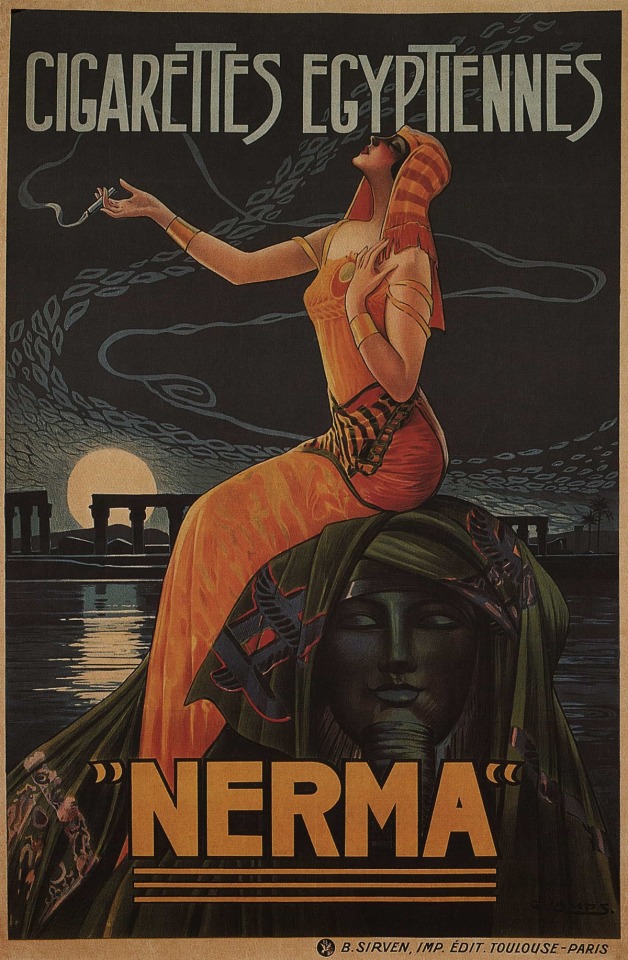
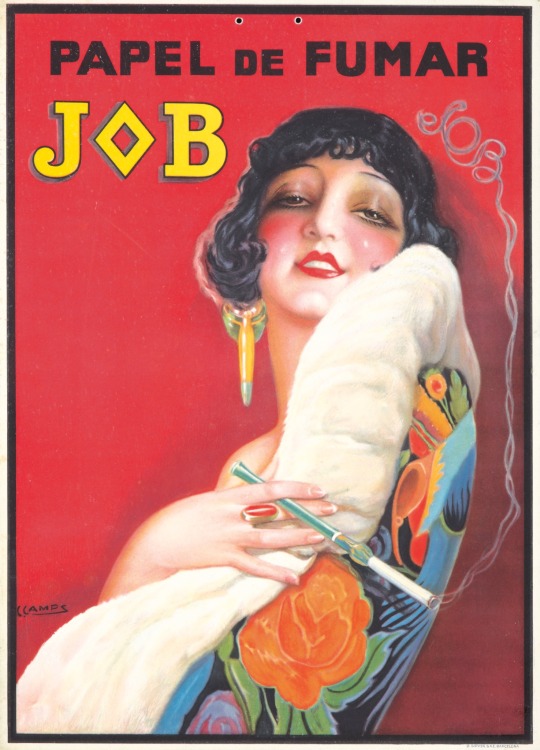
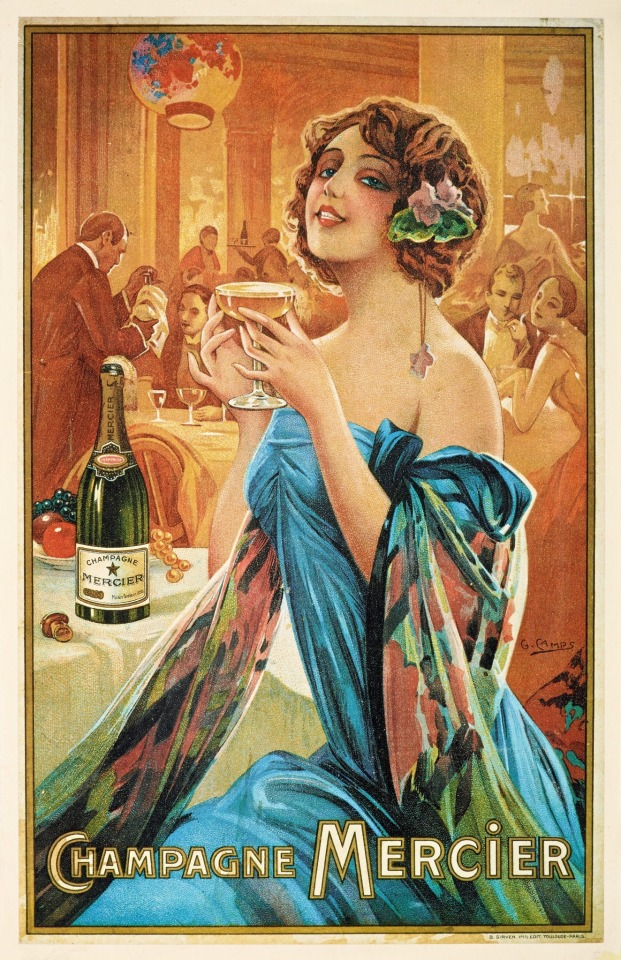
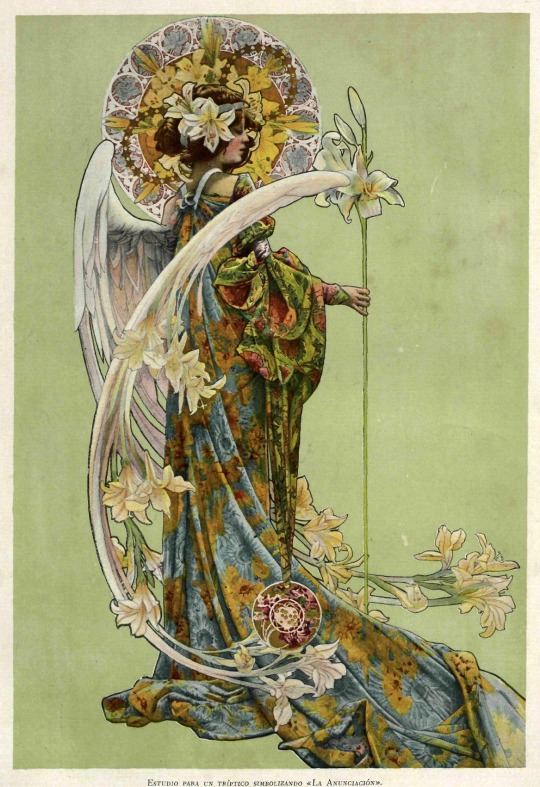
More Gaspar Camps (1874-1942)
23 notes
·
View notes
Text
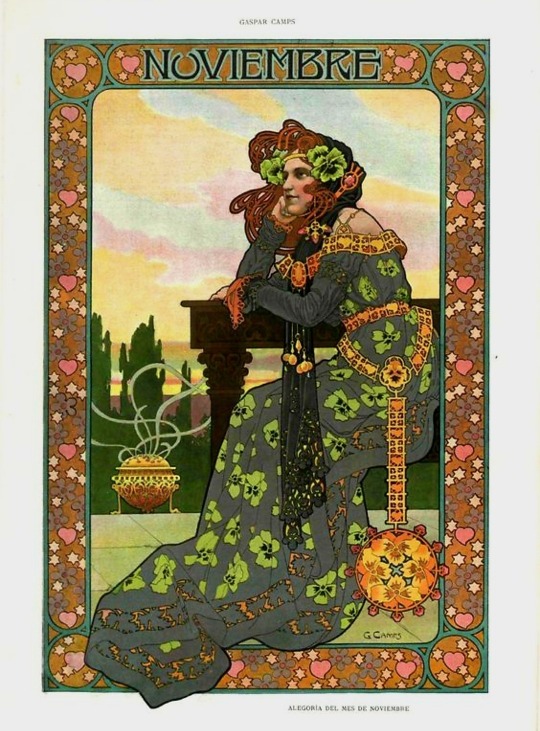
🍂 Allegoría del mes de Noviembre 1901 🍁
Illustration 🖼 de Gaspar Camps i Junyent
Bel après-midi 👋
#artwork#art et talent#illustration#gaspar camps#art nouveau#noviembre#november#mois#novembre#allégorie mois#affiche#belaprèsmidi#fidjie fidjie
25 notes
·
View notes
Photo

1920s flapper by Spanish artist Gaspar Camps.
#1920s#flapper#illustration#gaspar camps#spanish ilustrator#spanish art deco#art deco#camps#modern girl#my edit
36 notes
·
View notes
Photo

❣️ 🦢🦢 Happy Four Years to Odie!! 🦢🦢 ❣️
I managed to get the year count right this time, but my swan girl was created almost four years ago and I love her so much!!
Thank you all for coming along her journey over multiple worlds with me!
#the outer worlds#tow#Illustration#art nouveau#captain olivier#elden ring#odie adventures in elden ring#my art#inspiration source The Four Seasons by Gaspar Camps i Junyent#shoutout to char for picking out the patterns <3#trypophobia
40 notes
·
View notes
Photo
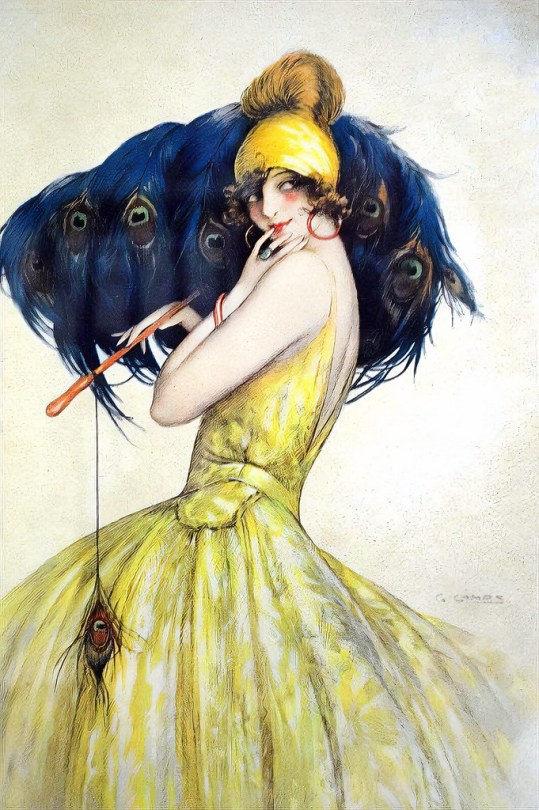
Girl with Fan by Spanish artist Gaspar Camps i Junyent, sometime in the 1920s.
39 notes
·
View notes
Text
Gaspar Camps i Junyent-Pintor y dibujante catalán Modernista.
Gaspar Camps i Junyent (Igualada, 29 de diciembre de 1874 - Barcelona, 11 de agosto de 1942) fue un dibujante, ilustrador y pintor español, con influencia del modernismo y la publicidad.1
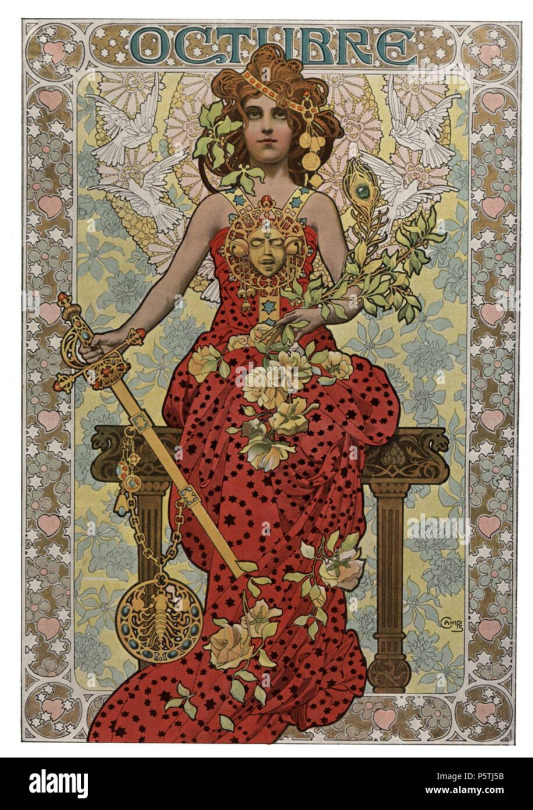
Estudió en la escuela del Ateneo Igualadí y en la Escuela de la Lonja, junto con Mir, Sunyer y Nonell. Compaginó los estudios con un trabajo de barbero, hasta que Benet Malvehí le dio trabajo como dibujante en su fábrica de sedas. En 1892 volvió a Igualada, donde empezó a dar clases de dibujo. En 1894, pensionado por la Diputación de Barcelona y con la ayuda económica de su tío y de Joan y Carles Godó, se trasladó a París, donde vivió 3 años y fue discípulo de Benjamin-Constant y Jean-Paul Laurens. Muy influido por estos y por el checo Alfons Mucha, su obra se caracteriza por los decorados modernistas y la exuberancia de formas, visibles en los numerosos dibujos publicados por Camps en la revista Album Salón (1897-1908) y en los carteles publicitarios de su época parisiense.
#Gaspar Camps i Junyent (Igualada 29 de diciembre de 1874 - Barcelona 11 de agosto de 1942) fue un dibujante ilustrador y pintor español#¿Esta es la imagen y algunos datos (O no) la “Historia” la pones tú? ¡La tuya! ¿Lo harás...?
7 notes
·
View notes
Text
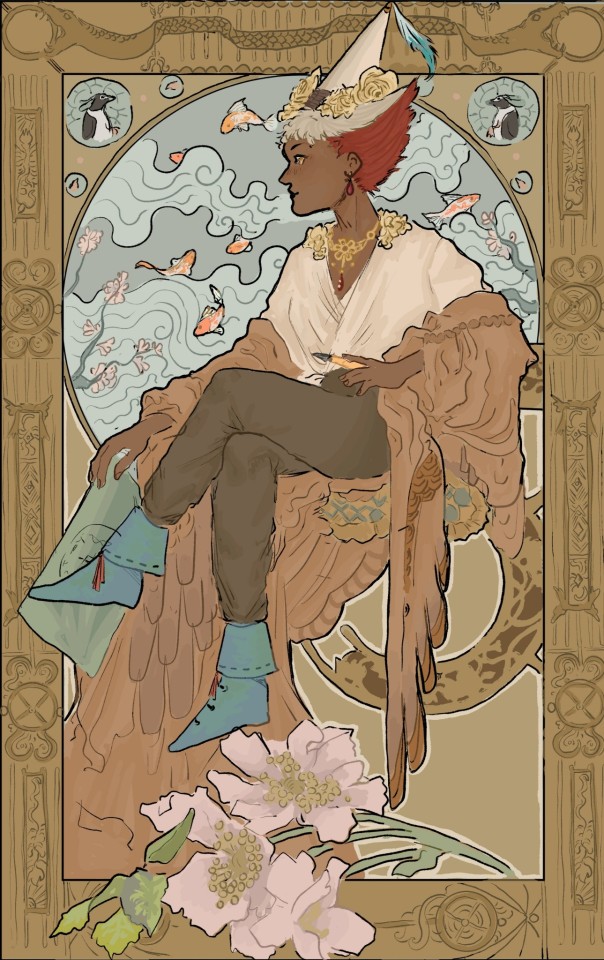
The time has come, here have another art nouveau inspired piece (this time it's more inspired by Gaspar Camps than Alfons Mucha)
#alaira#witch hat atelier#wha alaira#alaira fanart#wha fanart#witch hat atelier fanart#a.mucha inspired#well its not this time but its a tag ill be using for this series of drawings
782 notes
·
View notes
Text

Papel de Fumar Zig Zag por Gaspar Camps Junyent. Año 1915
#vintage ads#advertising#publicidad#spain#españa#vintage#weekend#viernes#friday#retro aesthetic#retro style#retro#1910s fashion#1910s art#1910s style#1910s#navidad#christmas#smoke#smoking#rolling papers#papel de fumar
43 notes
·
View notes
Text
Trust In My Hate: an Azris /Captive Prince Crossover
I likely won't start truly writing this fic until after What Lies Inside is completed, but I've been having a lot of fun planning, worldbuilding and outlining so I thought I would share some of it (but please note that the content of this post is subject to change, nothing’s final just yet.)
If you aren't familiar with the series, it's the Captive Prince Trilogy by C.S Pacat. [link to Penguin's page for the series here.]
I'm not calling this an AU because I'm not transplanting Azris to the Captive Prince (CaPri) world, nor am I transplanting the CaPri plot into ACOTAR. The world where the fic is set is inspired by both the CaPri and ACOTAR, as you can clearly see in the map below. The characters are maybe 60% ACOTAR, 25% OC, 15% CaPri. The plot is like 60% CaPri, 20% post-canon ACOTAR, 20% original. I essentially threw everything I liked into a blender and made something new.
Find the map and the fic's prologue below the cut! [new map and updated prologue as of 2/22]
Map:
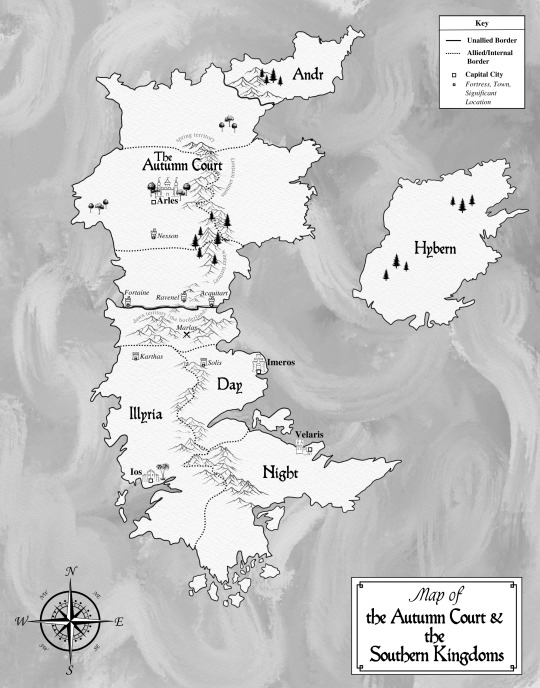
I recommend clicking on the map to view it at a higher resolution.
Prologue:
This will explain the map, I promise.
Excerpts from the Illyrian Chronicle, compiled by Gaspar Kasos for his majesty King Gabriel in the year 207 AL (after liberation.)
Long ago, the great Island of Prythian was divided into eight kingdoms. The Kingdom of Andr in the far north, and a coalition of seven kingdoms known collectively as the Courts. There were four seasonal Courts: Spring, Summer, Autumn, and Winter; and three solar Courts known as Dawn, Day, and Night. Five centuries ago, Cornelius II, then the ruler of the Autumn Court, began a campaign of expansion. By the time his great-great-grandson Timothy IV took the throne, the Autumn Court’s power had consumed the other three seasonal Courts. Timothy did not think Andr, that rocky formidable land, worth the resources necessary to claim it and thus turned his gaze to the south.
In response to the growing threat from the north, Dawn allied with Day. Both would remain neutral in the initial conflicts to come which distanced them from the Night Court who stood fixedly against Autumn’s actions.
Not long after this coalition was formed, a rebellion broke out in Night. For centuries the Night Court’s rulers had oppressed the Illyrian people within their borders, forcing them to live in desolate camps and serve in their armies. Under the leadership of the warrior Enalius, the Illyrians were able to break away from the Night’s oppression. During the revolution they conquered half of Night, establishing the great Kingdom of Illyria as it stands today.
Though Dawn and Day remained neutral for decades, it would not last. On the Winter Solstice in 57 AL, Autumn spies massacred Dawn's royal line in its entirety, prompting Night to join the Southern Coalition with Day to stand against Autumn and aid in governing Dawn's rulerless territory on the border.
Thirty-seven years ago the newly crowned King Rholand of Night and King Gabriel of Illyria met on the border at Mount Ramiel to discuss a tentative peace, marking the end of over a century and a half of strife between their lands. Rholand offered Illyria a public apology for Night’s persecution of their people, as well as a generous peace treaty and trade agreement that leaned heavily in Illyria’s favor. It was at this summit when Illyria formally joined the alliance against Autumn and the allied Southern Kingdoms as we know them were formed. The final offering on that celebrated day however, was made by no kingdom but by King Rholand's younger sister.
The Lady Elyssa of Night surprised all of those gathered by offering King Gabriel her hand in marriage, arguing that there would be no better demonstration of this new, peaceful relationship between their kingdoms than joining their houses by blood. Impressed by her eloquence and resolve, and after discussing the terms with Rholand, Gabriel accepted the proposal and the two were wed the following sunset at the grand temple in Illyria’s capital, Ios.
The three southern rulers of Prythian ensured that their sons and heirs—the Princes Azrelios of Illyria, Rhysand of Night, and Lucien of Day—grew up paying frequent visits between their lands to bolster the trio’s camaraderie. The rulers’ forethought was well rewarded when a brutal battle broke out at Marlas in the borderlands at the eve of this current decade.
The three young, then untested heirs valiantly led their forces against Autumn’s armies, but the battle only ceased when the Illyria’s Prince met Eren Vanserra, Heir to the Autumn Throne, in single combat and slew him on the battlefield. Eren’s death placed his younger brother Eris next in the line of succession.
The battle of Marlas shattered over two centuries of relative peace between Autumn and the South. Nine years later, skirmishes are still frequent in the borderlands and tensions between Autumn and the Southern Kingdoms are at an all time high.
If you made it this far, thank you <3 I know I'm a nerd. Yes, I made the map myself and likely spent waaayyyy too much time on it but I think it's pretty cool and I hope it stoked some excitement!
#azris#azris fanfic#captive prince au#captive prince#my wips#acotar fanfiction#acotar au#azriel#azriel shadowsinger#azriel acotar#eris vanserra#eris acotar
74 notes
·
View notes
Text
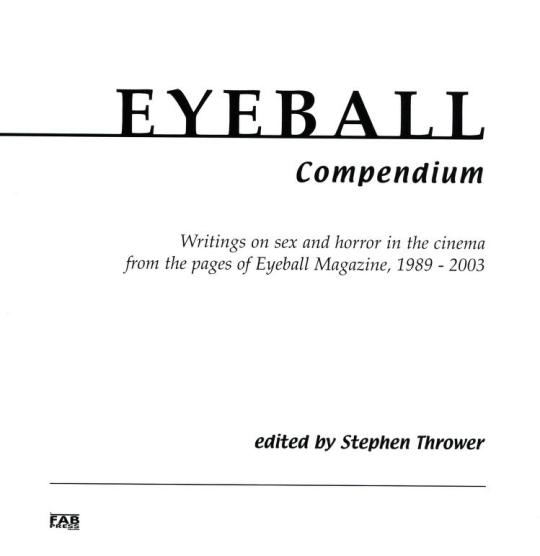
Eyeball was the magazine most likely to juxtapose Jean-Luc Godard and Joe D'Amato, taking the supposed highs and lows of (principally European) cinema culture and interlacing them. The seed was my love for the fantastical horror films of Dario Argento, Mario Bava and Lucio Fulci, and they in turn led me further and further into the Euro-horror jungle (quite literally at times, with films like CANNIBAL HOLOCAUST). There was something fascinating, disobedient, edgy and perverse about Europe's horror cinema, but I didn't want to celebrate this at the expense of an appreciation of Alain Resnais, Michaelangelo Antonioni etc, so I was soon looking for a way to gradually merge the two areas. The art film lover usually sneers at the crudities' of exploitation, and likewise the gorehound usually scoffs at the 'pretensions' of so called art cinema. To me there's no need for this, when the real enemy is the mainstream of commercial cinema. The perfect Eyeball director is someone like Dario Argento or Alejandro Jodorowsky, Andrzej Zulawski or Lars Von Trier, Nicolas Roeg or Gaspar Noe, whose films are too perverse and threatening, too hard to classify, too bizarre and wayward to sit exclusively in either camp. Too arty for the average horror fan, too strange and cruel for the bourgeois art scene. Jodorowsky said to me, "/ think, with the horror picture, there is now the only possibility of freedom and poetry". Andrzej Zulawski said that if a Martian came to Earth and asked 'what is cinema?', one film you should screen is THE TEXAS CHAIN SAW MASSACRE. Movies that engage with the darker side of life, be it visceral, psychological or philosophical - this was the essence and ethos of Eyeball.
Eyeball Compendium (2003) (MIG) c2c : Free Download, Borrow, and Streaming : Internet Archive
3 notes
·
View notes
Audio
El 25 de gener (“The 25th of January”) is a song by the Catalan band Manel that we could maybe describe as... doubtful post-Christmas music?
I really like the song and its lyrics. I’ve translated them here. Read until the end and let me know what you think what the story is talking about!
But before we get to the lyrics, I’ll give some context for people from other countries who might not be familiar with these characters. According to the tradition, the White King (Melchior), the Blonde King (Gaspar), and the Black King (Baltazar) are the Three Wise Men, who in Catalan we call the Eastern Kings (els Reis d’Orient). These kings were magicians and astronomers, and they followed a shooting star that would lead them to the birth of a child who would be the Messiah. On the night of January the 5th, they reached the barn where baby Jesus was, and offered him the gifts of gold, incense, and myrrh.
For this reason, Catalan people and other cultures with a Christian background celebrate the day of the Three Wise Men as our equivalent of what Santa Claus is to the USA. The Three Wise Men bring presents for all children and families meet to eat a cake.
This song is set after that event, on the 25th of January (a date they probably chose as the title as a reference to the most famous traditional Catalan Christmas song, titled El 25 de desembre, “the 25th of December”), when the kings are on their way to return back home.
These are the lyrics:
Segons els pastors de l'últim poble
darrera els horts veurien uns pins,
passats aquells pins el camp d'oliveres
i, al fons, tres camins.
According to the shepherds from the last village
behind the orchards they would see some pine trees,
and past those pine trees, the olive trees field
and, in the background, three paths.
Han pres el trencall i s'ha obert la clariana
i han ordenat als homes descans.
Al camp d'oliveres tres reis s'acomiaden
i encaixen les mans.
They’ve taken the detour and the clearing has opened
and they have ordered their men to rest.
In the olive tree field, the three men say goodbye
and shake their hands.
Melcior aixeca el cap i veu la muntanya
que abans que enfosqueixi ha d'estar travessant
i es treu la suor amb el coll de la capa
tacada de fang.
Melchior raises his head and sees the mountain
that he must be crossing before it goes dark
and he sweeps away his sweat with his cape’s collar
stained in mud.
I no vol ni pensar que les forces s'acaben
i ni us imagineu com s'emprenya quan,
en beure en el riu, només troba la cara
d'un home gran.
And he doesn’t want to even think of the strength coming to its end
and you can’t even imagine how angry he gets when,
as he drinks from the river, he only finds the face
of an elderly man.
El rei dóna l'ordre pel toc de corneta
pensant en aquells que, no fa pas tant,
li besaven l'escut i entregaven les armes
agenollats.
The king gives the order for a bugle call
thinking of those who, not so long ago,
used to kiss his shield and turn in their weapons
kneeling.
Des de dalt del camell fot un crit el rei negre,
que faci el favor algun bon soldat
d'aixecar el cul de terra i fer un ràpid recompte
de racions de pa.
From on top of the horse, the black king shouts
for some good soldier
to raise his ass from the ground and quickly recount
the rations of bread.
Qui pogués creuar el bosc i trobés una barca!
Qui abans d'adormir-se amb el braç estirat
notés com els dits mica en mica retallen
l'aigua del mar!
Who could cross the forest and find a boat!
Who, before falling asleep with his arm straight out,
could feel how his fingers slowly cross
the sea’s water!
Qui arribés a palau i triés una dona,
arranqués unes roses i li allargués un ram!
Baltasar té el desig corrent per les venes
com si fos sang.
Who could reach the palace and choose a woman,
pick a few roses and hold out a bouquet to her!
Baltazar has desire running through his veins
as if it were blood.
Gaspar pot sentir clavats a l'espatlla
els ulls d'alguns patges que estan esperant
un cop d'atenció, potser una mà alçada,
una ordre reial.
Gaspar can feel fixed on his back
the eyes of some page boys who are waiting
for a shout of attention, maybe a raised hand,
a royal order.
Un dels homes canta enmig d'una rotllana
amb la veu més dolça que hagueu sentit mai
una cançó antiga que el rei taral·leja
amb els llavis tancats.
One of the men sings standing in the middle of a circle
with the sweetest voice that you have ever heard
an ancient song song that the king hums to
with sealed lips.
El patge més vell es gira i comenta
mirant un segon de reüll cap al cel
“sembla mentida que bé que vivíem
seguint un estel.”
The oldest page boy turns around and comments
quickly glancing for a second at the sky
“It’s hard to believe how well we used to live
following a star.”
#música#arts#manel#llegendes#music#legends#christmas#song rec#translation#catalan#january#music rec#indie#indie music#langblr#legend#christian mythology#three wise men#reis d'orient#català#nostalgic#indie pop#alternative music
37 notes
·
View notes
Text
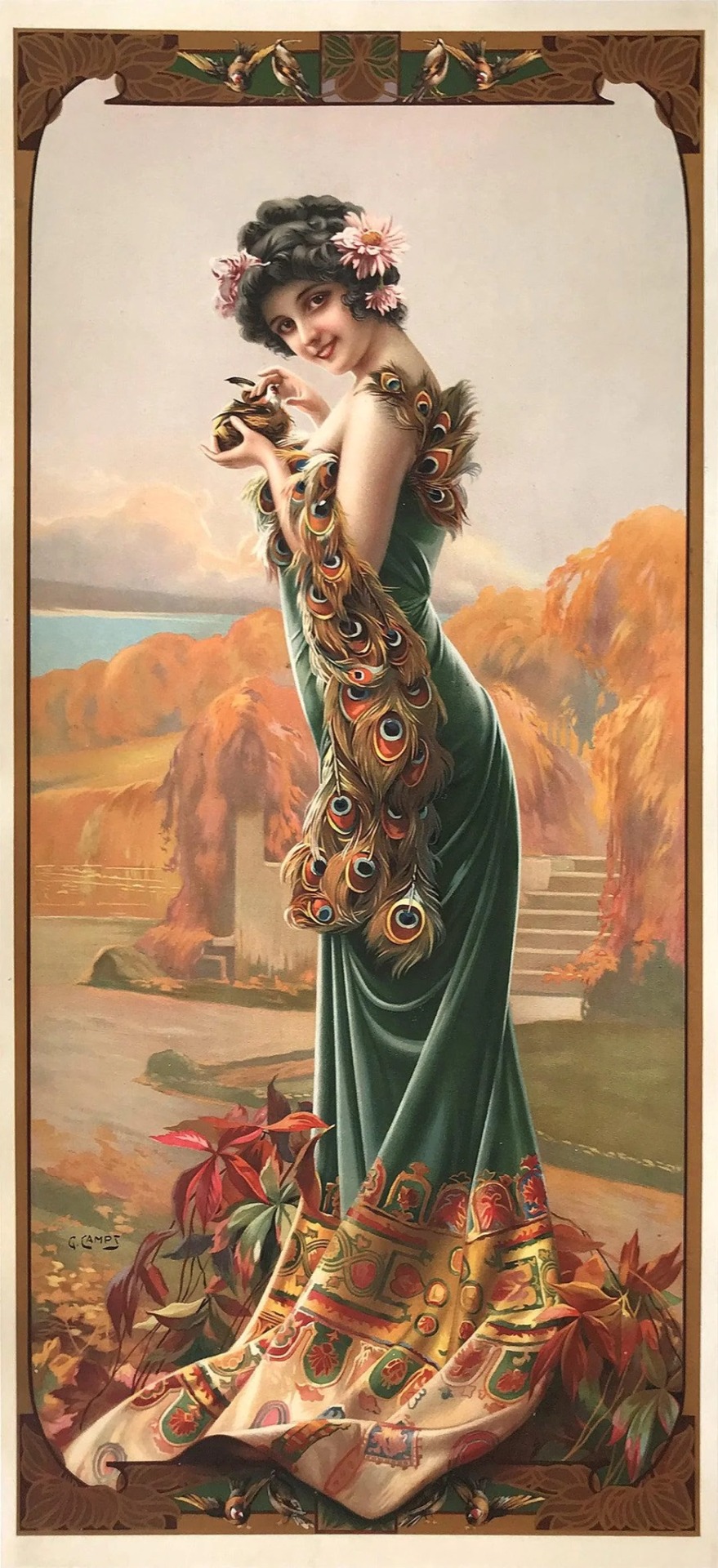
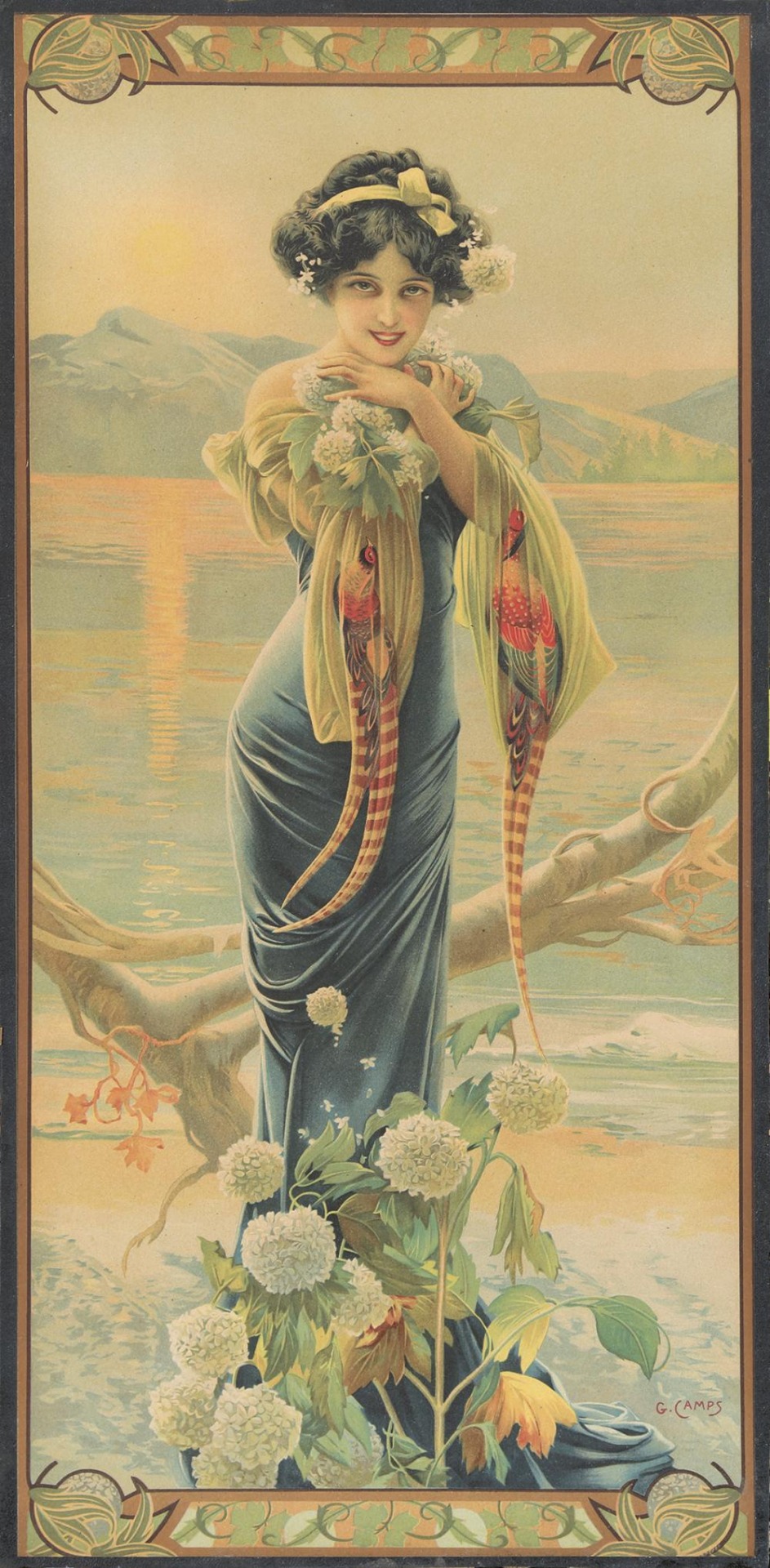
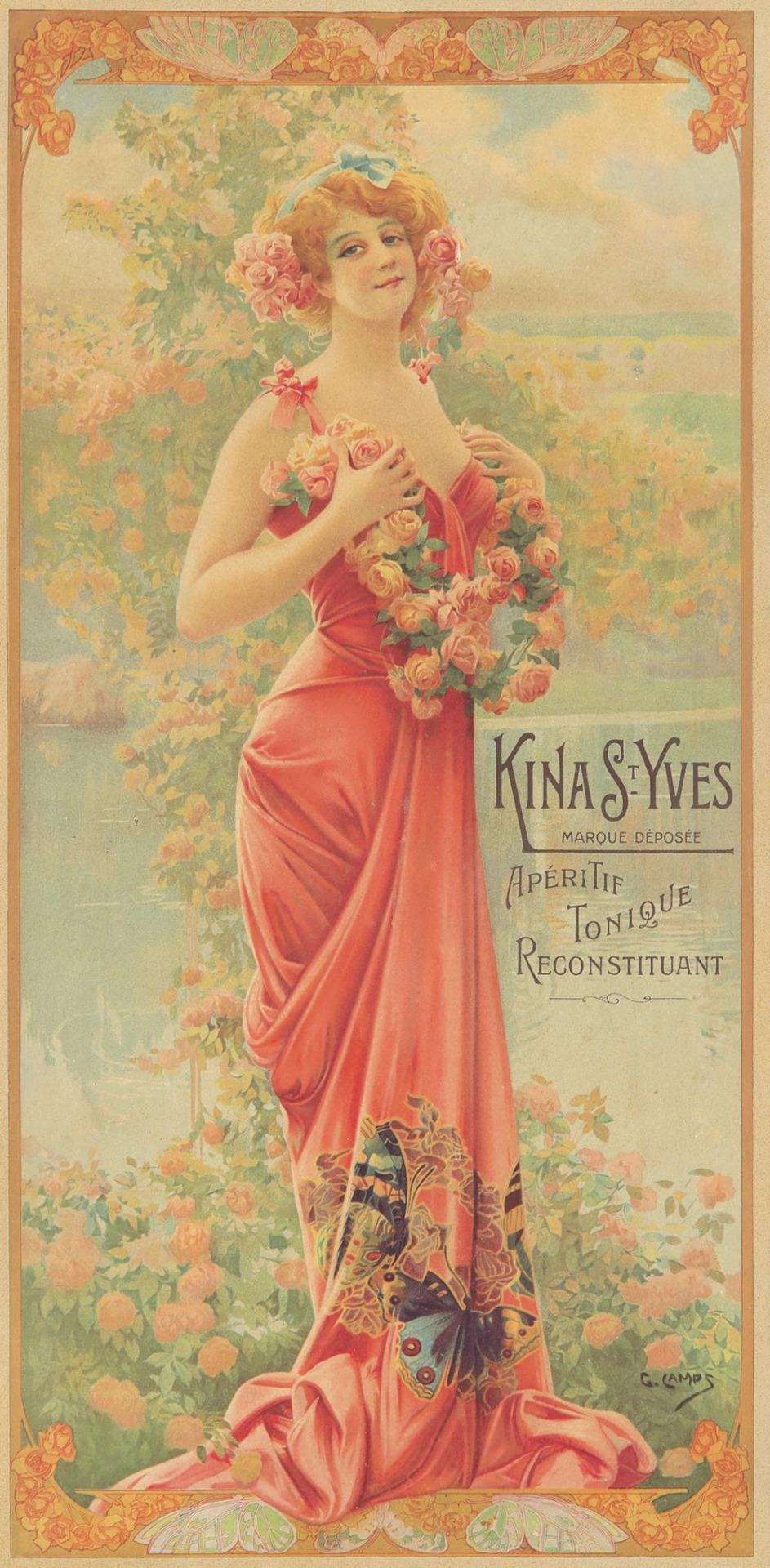
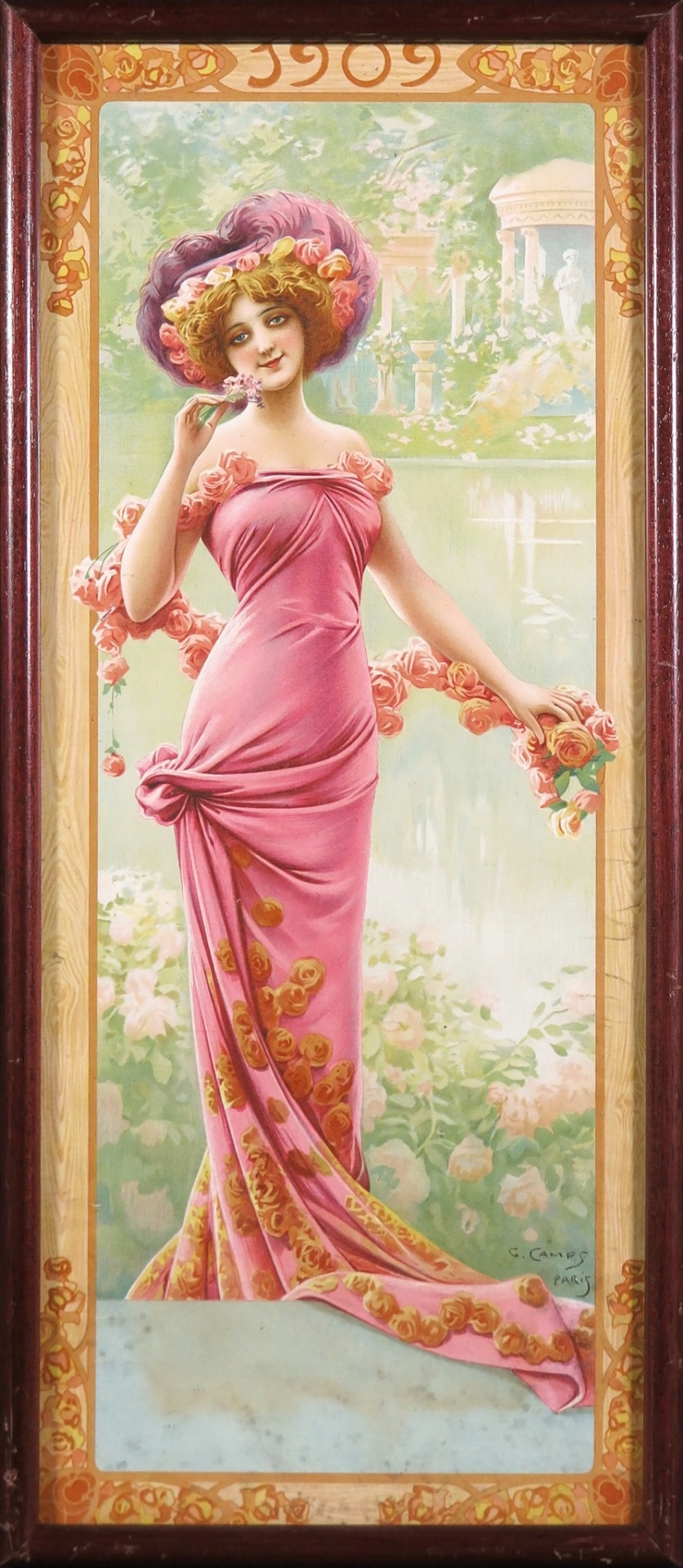
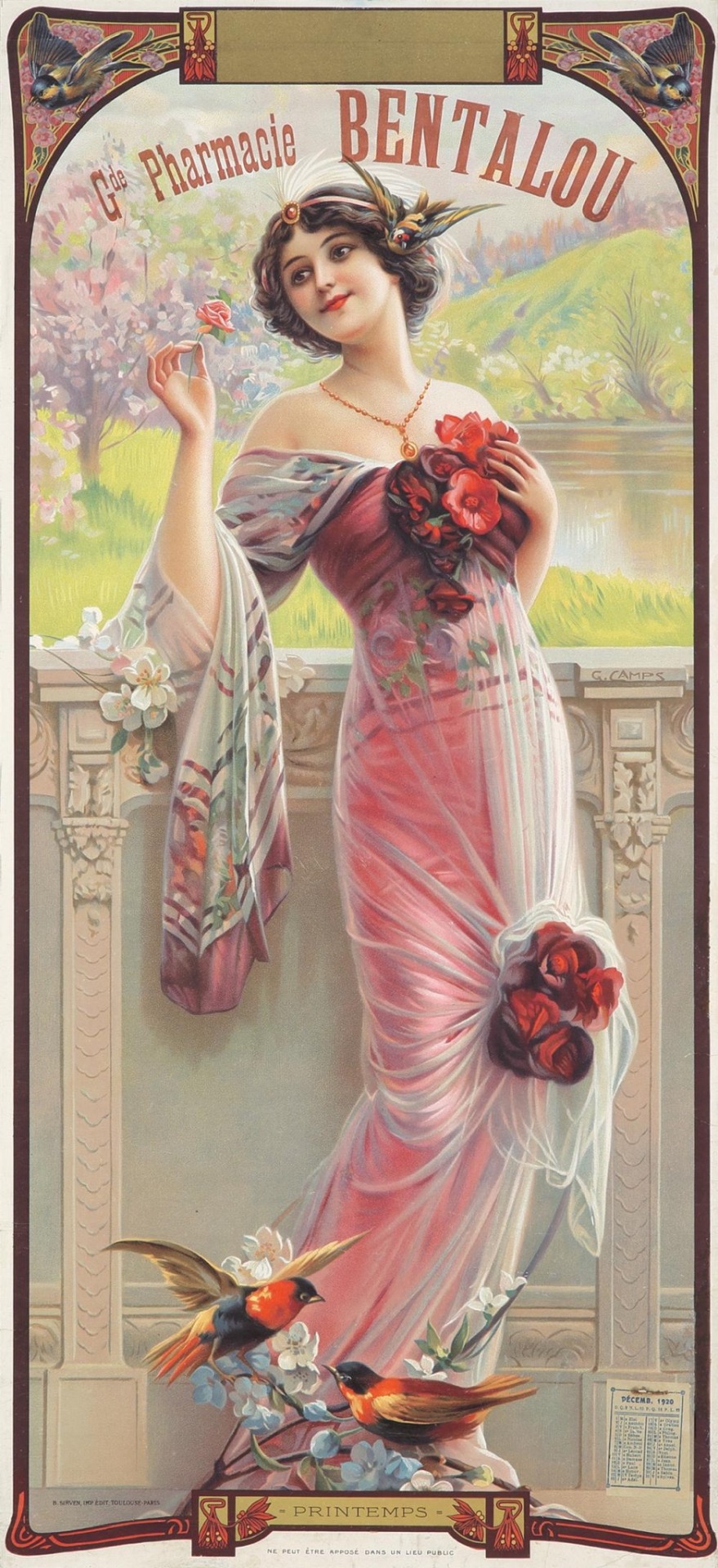
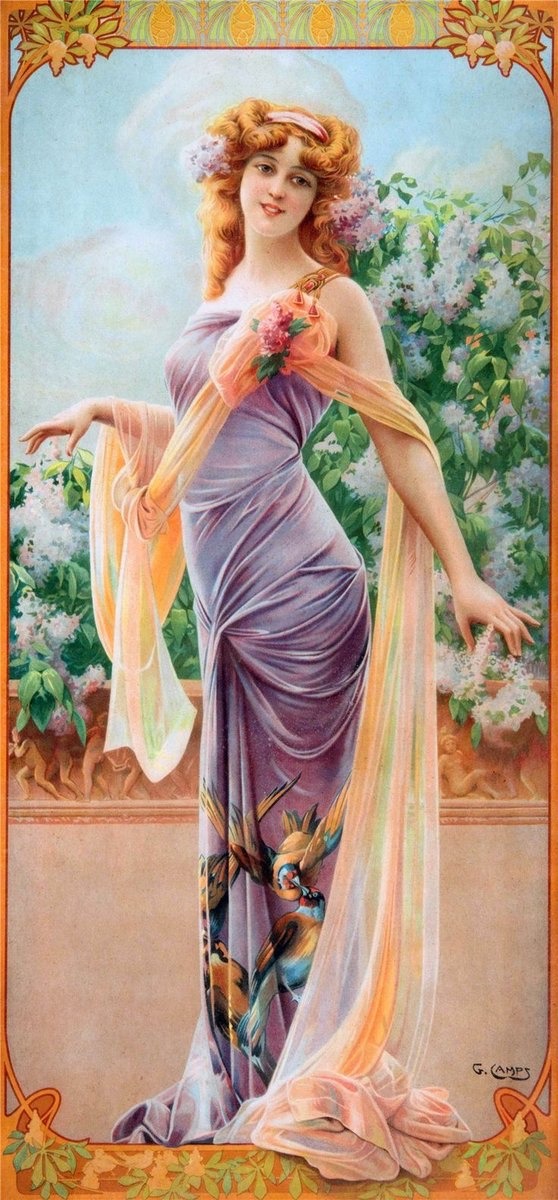
Gaspar Camps (1874-1942)
17 notes
·
View notes
